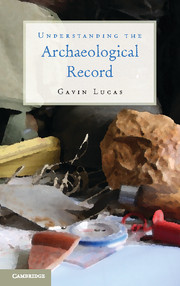2 - The Total Record
Published online by Cambridge University Press: 05 June 2012
Summary
In this chapter, my focus is on the archaeological record as it is encountered by archaeologists in the present and how it is constituted as historical evidence in the form of archaeological archives. Indeed, the term ‘archaeological record’ can refer both to what archaeologists find in the ground and to their notes, drawings, or photographs produced in the course of fieldwork. Such records or archives – not the actual remains themselves – in many ways form the principal basis of interpretation (Lucas 2001b: 44). This is not to deny the interpretive element in producing such archives, but rather to emphasize that archaeologists work on texts and documents as much as objects and deposits in their work. The issue of how these two aspects of the archaeological record – as given and as produced – are related is addressed in Chapter 6; my primary concern in this chapter is examining how both these aspects of the archaeological record have been problematized through the idea of incompleteness, hence the title of this chapter. The concept of the total record has various meanings; on the one hand, it can refer to a contemporary sense of an objective and complete representation of what lies in or on the ground. This has perhaps always been a fiction, but a useful one nonetheless in certain circumstances, as I discuss later in this chapter. But other meanings are implied by the concept of a total record, even if this particular term has not necessarily been used. Thus, I argue that from the late nineteenth and early twentieth centuries, the problem of incompleteness was chiefly linked to acquiring as full or complete collections of material as possible, a goal enshrined in the concept of the corpus. Incomplete collections were the bane of proper interpretation. During the twentieth century, this concept gradually migrated so that incompleteness increasingly came to apply to the nature of the archaeological remains vis-à-vis the past rather than to archaeological practices of collecting. Issues of preservation and representivity became paramount through the Central European tradition of source criticism or Anglo-American sampling theory.
- Type
- Chapter
- Information
- Understanding the Archaeological Record , pp. 18 - 73Publisher: Cambridge University PressPrint publication year: 2012



